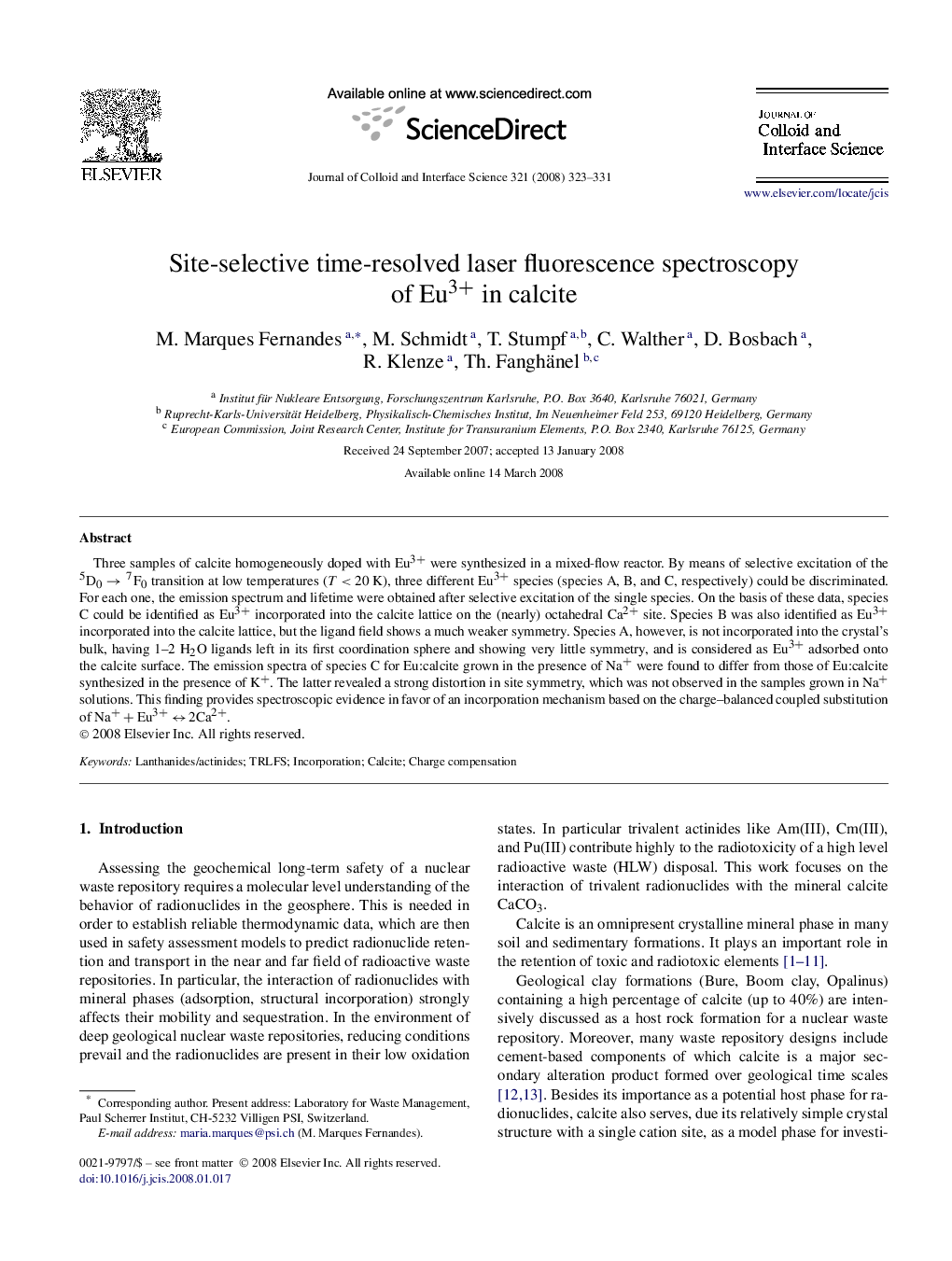| کد مقاله | کد نشریه | سال انتشار | مقاله انگلیسی | نسخه تمام متن |
|---|---|---|---|---|
| 611226 | 880670 | 2008 | 9 صفحه PDF | دانلود رایگان |

Three samples of calcite homogeneously doped with Eu3+ were synthesized in a mixed-flow reactor. By means of selective excitation of the D05→F07 transition at low temperatures (T<20 KT<20 K), three different Eu3+ species (species A, B, and C, respectively) could be discriminated. For each one, the emission spectrum and lifetime were obtained after selective excitation of the single species. On the basis of these data, species C could be identified as Eu3+ incorporated into the calcite lattice on the (nearly) octahedral Ca2+ site. Species B was also identified as Eu3+ incorporated into the calcite lattice, but the ligand field shows a much weaker symmetry. Species A, however, is not incorporated into the crystal's bulk, having 1–2 H2O ligands left in its first coordination sphere and showing very little symmetry, and is considered as Eu3+ adsorbed onto the calcite surface. The emission spectra of species C for Eu:calcite grown in the presence of Na+ were found to differ from those of Eu:calcite synthesized in the presence of K+. The latter revealed a strong distortion in site symmetry, which was not observed in the samples grown in Na+ solutions. This finding provides spectroscopic evidence in favor of an incorporation mechanism based on the charge–balanced coupled substitution of Na++Eu3+↔2Ca2+Na++Eu3+↔2Ca2+.
Figure optionsDownload as PowerPoint slide
Journal: Journal of Colloid and Interface Science - Volume 321, Issue 2, 15 May 2008, Pages 323–331